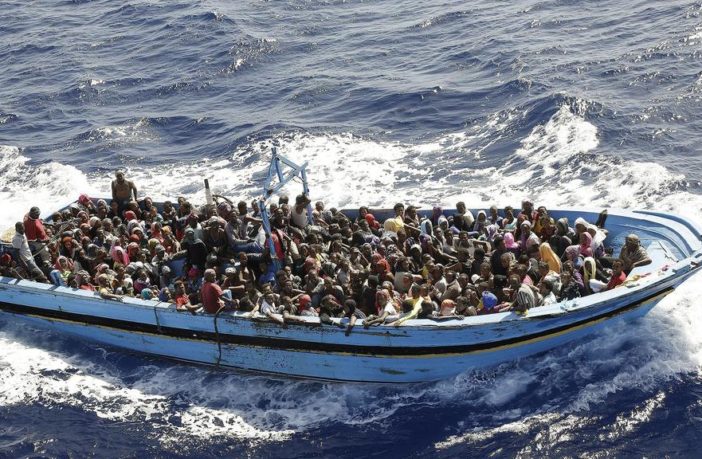Eurasia Review
A total of 13,263 illegal immigrants arrived in Spain between January and the end of June 2019. This is 4,037 fewer than in 2018, when a total of 17,300 had arrived by July 1.
The number of illegal immigrants arriving in Spain during the first six months of 2019 has fallen by 23.3% when compared with the same period in 2018. According to the latest immigration figures, a total of 13,263 illegal immigrants arrived in Spain between January and the end of June 2019. This is 4,037 fewer than in 2018, when a total of 17,300 had arrived by July 1.
This decrease is especially sharp in the number of illegal immigrants arriving by sea. In the first half of 2019, a total of 10,475 illegal immigrants arrived in Spain by sea. This compares with a total of 14,426 in the same period in 2018, a decrease of 27.4%.
A similar trend can be seen when only comparing the illegal immigrants who arrived in June: 2,798 in June 2019 compared with 6,187 in June 2018. These figures mean that Spain has recorded a level in the first half of the year similar to the level recorded in 2017, when a total of 2,682 illegal immigrants arrived in Spain in June.
Measures adopted
Following instructions from the Prime Minister Pedro Sanchez, the Ministry of Home Affairs has implemented a number of measures to combat the arrival of immigrants on Spanish coasts since June 2018, both to control illegal immigration and to provide assistance to immigrants.
Based on these same guidelines from the Government of Spain, the acting Minister for Home Affairs, Fernando Grande-Marlaska, has been committed since he took up his post to cooperating with the countries of origin and transit for immigration, Moncloa said. To this end, he has travelled to several African countries in a little under a year to hold work meetings with local authorities. Fernando Grande-Marlaska has travelled to Morocco, Algeria, Mauritania, Senegal, Gambia, Guinea-Conakry, Ivory Coast and Ghana. His trip to the latter four sub-Saharan countries was the first ever made by a Spanish Minister for Home Affairs.
The strengthening of bilateral relations with Morocco should also be highlighted in terms of this cooperation, according to the Spanish government. Morocco is a preferred partner of Spain and is engaged in effective efforts to control illegal immigration towards Spain from its territory. The policies in place in the two countries have also boosted their cooperation in the fight against people trafficking networks and have led to the break-up of criminal organisations in both Morocco and Spain.
Another measure adopted in August 2018 was to set up the Coordination Authority for action to combat illegal immigration in the Strait of Gibraltar, Alboran Sea and adjacent waters. From its operational base in Malaga, this body coordinates the actions by various ministerial departments to streamline resources allocated to the control of illegal immigration.
It is also worth highlighting the strengthened joint police teams that play a major role in the fight against the mafias engaged in people trafficking. From 2006 to date, Spain and Mauritania have been effectively cooperating on the Nouadhibou Joint Investigation Team (JIT). Furthermore, Spain heads up the European Niger JIT Project alongside France and is working on other similar projects in various West African countries.
The Government of Spain has advocated and promoted a common and coordinated EU immigration policy that is based on solidarity and cooperation between the countries of origin, transit and destination for immigrants, Moncloa said.








